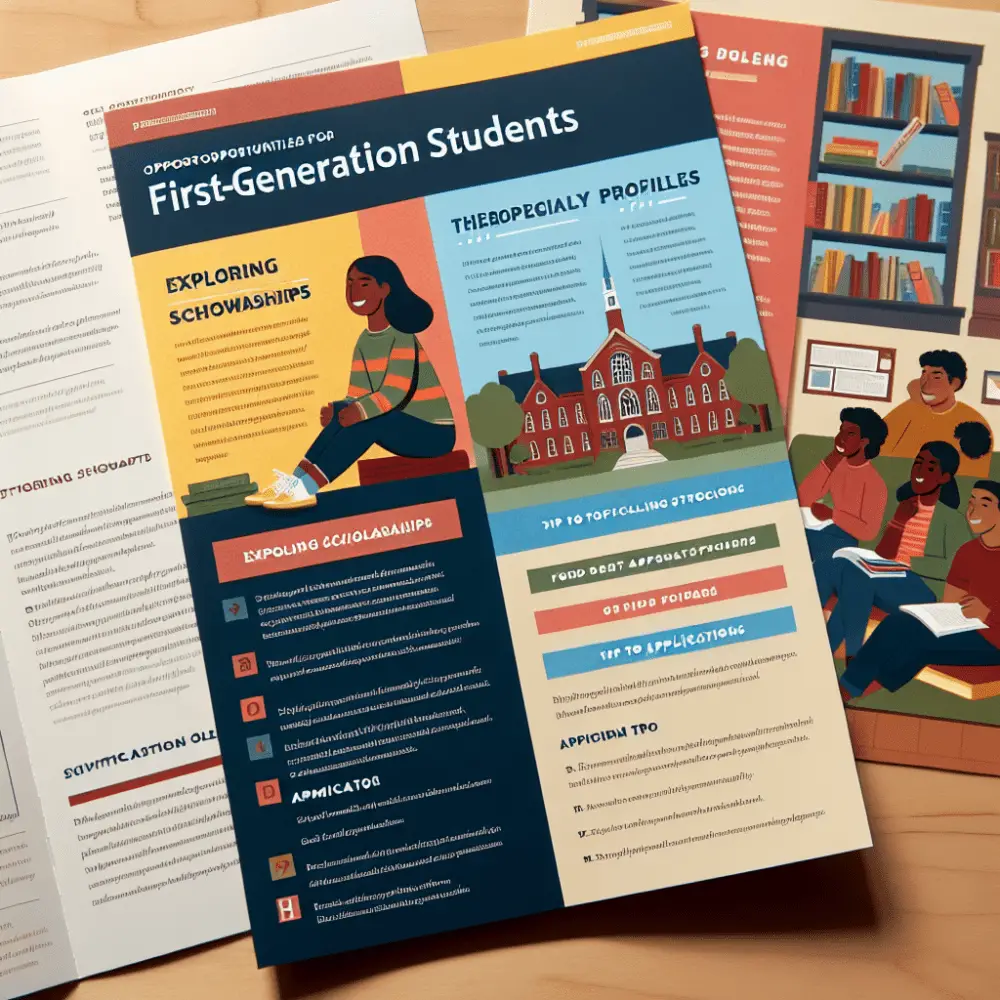
First-generation students face unique challenges when it comes to pursuing higher education. Many of these students come from families where no one has earned a college degree, which can make navigating the complex world of scholarships and financial aid particularly daunting. However, there are numerous opportunities available specifically for first-generation students to help alleviate the financial burden of attending college. Scholarships can provide much-needed support and open doors to a brighter future for these students.
In this article, we will explore the various scholarships designed specifically for first-generation students. From merit-based scholarships to need-based scholarships, there are options available for all types of students. By taking advantage of these opportunities, first-generation students can overcome financial obstacles and pursue their dreams of higher education.
Merit-Based Scholarships
Merit-based scholarships are awarded based on a student’s academic achievements, extracurricular activities, community service, and other accomplishments. These scholarships do not take financial need into account, making them an excellent option for first-generation students who excel academically. Many colleges and universities offer merit-based scholarships to attract top talent and reward high-achieving students.
Need-Based Scholarships
Need-based scholarships are awarded based on a student’s financial need. These scholarships take into account factors such as family income, household size, and other financial obligations. First-generation students often come from low-income backgrounds, making them eligible for many need-based scholarships. These scholarships can help cover tuition costs, books, housing, and other expenses associated with attending college.
First-Generation Scholarships
Several organizations offer scholarships specifically for first-generation college students. These scholarships are designed to support students who are the first in their families to attend college. By encouraging and empowering first-generation students, these scholarships aim to increase access to higher education and promote diversity on college campuses.
State-Specific Scholarships
Many states offer scholarships specifically for residents who demonstrate academic excellence or financial need. First-generation students should research scholarship opportunities in their state to see if they qualify. State-specific scholarships can help offset the cost of tuition and make attending college more affordable for first-generation students.
Community-Based Scholarships
Community organizations and businesses also offer scholarships to support local students pursuing higher education. First-generation students should reach out to community resources such as churches, non-profit organizations, and businesses to inquire about scholarship opportunities. These community-based scholarships can provide valuable financial assistance to help first-generation students achieve their academic goals.
Tips for Applying for Scholarships
When applying for scholarships, it is essential to be organized and thorough in your approach. Here are some tips for first-generation students seeking scholarship opportunities:
- Create a list of all potential scholarship opportunities
- Gather all required documents such as transcripts, letters of recommendation, and essays
- Meet all application deadlines
- Submit high-quality applications that showcase your achievements and aspirations
- Frequently check your email for updates on scholarship applications
Frequently Asked Questions (FAQ)
1) Can international first-generation students apply for these scholarships?
Yes! Most scholarship programs welcome applications from international first-generation college students.
2) Do I have to maintain a certain GPA to keep my scholarship?
Many merit-based scholarships require recipients to maintain a minimum GPA in order to renew the award each year.
3) Are there any renewable scholarship options available?
Absolutely! Some scholarships are renewable each year as long as you continue to meet the eligibility criteria.
4) How can I find out about additional scholarship opportunities?
You can search online databases like Fastweb or Scholarships.com or visit your school’s financial aid office for information on additional scholarship opportunities.












